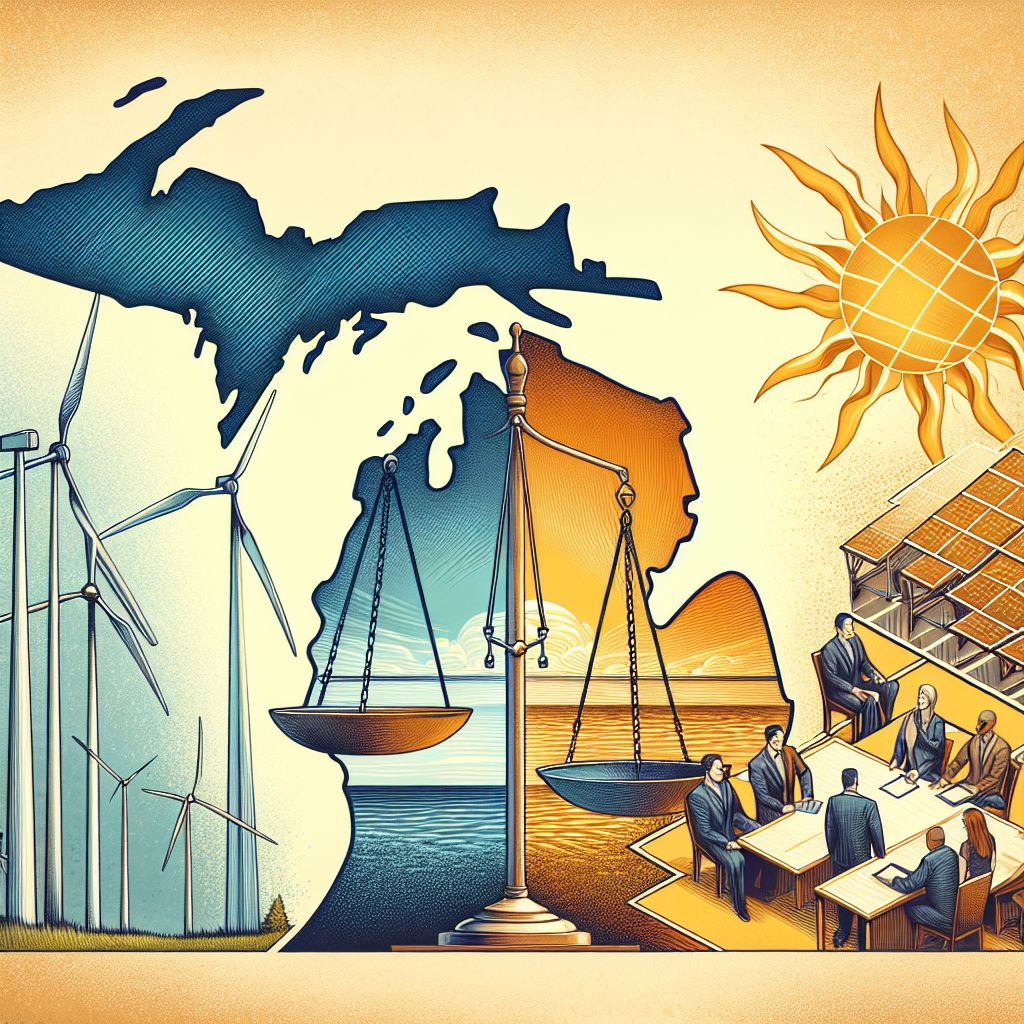Added on December 2, 2024
Marsha Chartrand
Michigan’s controversial wind, solar energy law is in effect. What to know
Decrease Font Size
Increase Font Size
Text Size
Print This Page
Send by Email
Amid growing tension over proposed wind and solar developments in rural communities, a new law allows the state to override local rejections of those developments. Implementation begins Nov. 29. (Bridge photo by Dale Young)
by Kelly House (Bridge Michigan)
A controversial law that allows the state to approve large wind and solar farms over local objections is now in effect.
The law, Public Act 233, went into effect Friday, Nov. 29, and was among the more contentious aspects of a suite of reforms enacted last year to speed Michigan’s clean energy transition.
Concerned about fierce local opposition that is slowing efforts to replace fossil fuel power with green energy, the Legislature passed bills along party lines that curtail local officials’ authority to reject renewable energy projects in their community.
State energy regulators have spent the past year setting up a system for approving large-scale wind, solar and battery storage projects.
But the law faces a court challenge and other headwinds.
Here’s what to know:
What the law does
The new law spells out uniform statewide standards, such as how much noise they can emit and their proximity to homes.
It applies to solar projects of at least 50 megawatts (about 350 acres) and wind farms of at least 100 megawatts (about 35 turbines.)
The law sets up a mechanism that allows developers to appeal to state regulators within the Michigan Public Service Commission if local governments deny projects that meet state standards.
Proponents of the change include environmental and labor groups and some farmers. They argue the law helps prevent a vocal minority from stalling Michigan’s energy transition and violating property owners’ rights to put wind turbines or solar panels on their land.
Opponents include the Michigan Townships Association and Michigan Farm Bureau. They contend the law deprives local communities of the right to make their own land use decisions.
Why it matters
Fossil fuel plants that power the world’s electrical grid today are emitting heat-trapping greenhouse gases, which is destabilizing the earth’s climate.
According to climate scientists, humanity has mere years to stop emitting greenhouse gases or face increasingly dire consequences.
Michigan legislators last year passed a law requiring state utilities to get 100% of their power from clean sources by 2040.
To achieve that goal, Michigan may need to dedicate 209,000 more acres of land to wind and solar development.
But local opposition is stalling wind and solar projects across the state. Neighbors who oppose solar or wind farms raise concerns about lost farmland, sullied views and environmental or nuisance concerns.
Supporters of the projects say society will face far b

